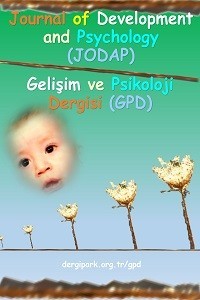
Gelişim ve Psikoloji Dergisi
Yazarlar: Gülendam AKGÜL
Konular:Eğitim Psikolojisi
Anahtar Kelimeler:Cyberbullying,Theories,Prevention and intervention
Özet: Together with the increase of internet access and usage, cyberbullying and victimization has become important concepts which affect children and adolescents’ lives, psychological well-being and academic success due to the high prevalence rates. Theoretical studies are important in the development of intervention programs. In the literature, there is plenty of research which explains theories of cyberbullying and test them. However, despite the research on the relationship between cyberbullying and various variables, the relativeley less number of theoretical research in especially Turkish literature draws attention. The aim of this study is to investigate the theories which try to explain the underlying causes and maintaining factors for cyberbullying behaviours in the literature. Hence, the explanations of Social Ecological Theory, Online Disinhibition Effect, General Aggression Theory, Theory of Reasoned Action and Planned Behavior, Barlett and Gentile’s Cyberbullying Model, General Strain Theory, Routine Activities Theory and I Cubed Theory for causes and maintaining factors of cyberbullying are presented in the current review study, in addition to research findings about these theories. Intervention and prevention programs which take into account providing information, raising awareness on the subject and preventive measures come into prominence when all these studies are taken together. Besides the intervention programs for child and adolescents, the necessity of more comprehensive programs which include family, teachers, school and peers have emerged. The causal explanations of theories are discussed in terms of their contribution to prevention and intervention studies.
Dergi editörleri editör girişini kullanarak sisteme giriş yapabilirler. Editör girişi için tıklayınız.